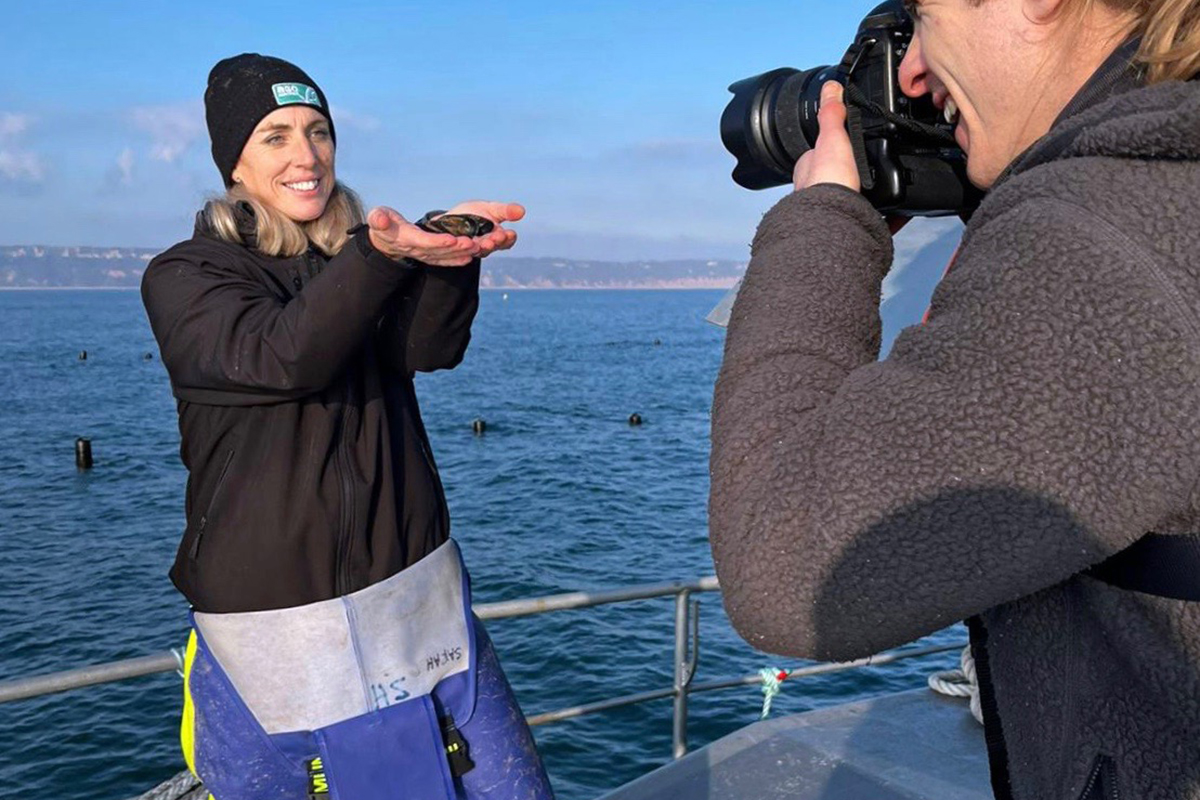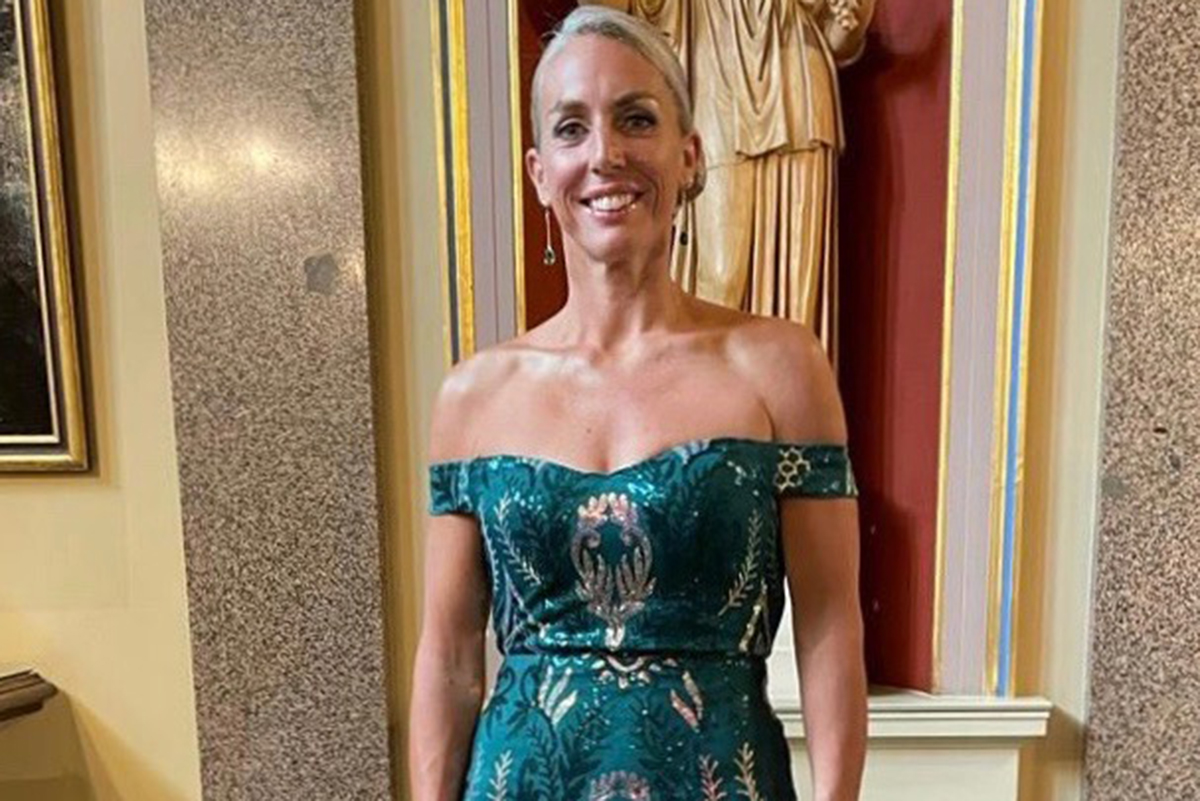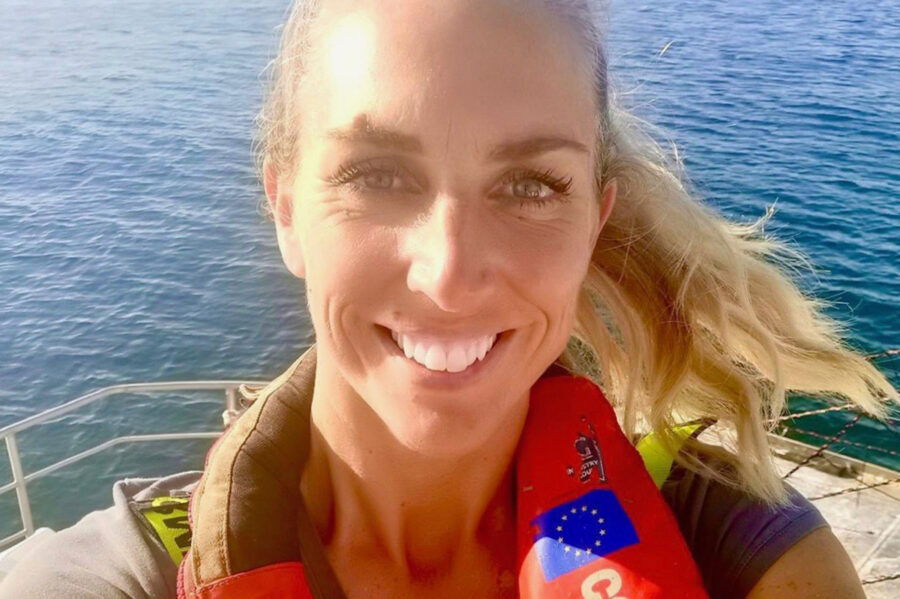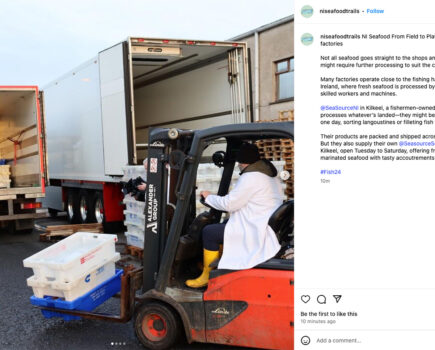“My family is a seafood family. It’s something that I’ve always been around,” Sarah Holmyard, head of sales and marketing at Offshore Shellfish, told Fishing News. “It’s not something that I wanted to get involved in as a child – but it was inevitable!”
Sarah was just 12 when she took her first steps into the industry, selling smoked salmon and teaching fly-fishing at Inverawe. By the age of 16 she was working onboard a charter boat out of Oban at weekends, baiting lines and cooking breakfasts for fishermen – and her career path was set.
However, it wasn’t simply a case of going straight into the family business. “Sales and marketing interested me, so I took a degree in International Business with French and Spanish. As part of the degree, I was a stagiaire [intern] for a year for Loch Fyne Oysters and Loch Duart in France. I really enjoyed the work, and knew that was the avenue I wanted to pursue.”
After university, Sarah become marketing manager for Seafood Scotland, where she remained for eight years before moving south, firstly to work for seafood companies in Devon and Cornwall, then for an Australian fish farming company.
Sarah finally joined the family business in 2018. It farms mussels between three and six miles offshore in Lyme Bay, Devon, and has the largest mussel lease in the UK. Founded by Sarah’s parents John and Nicki, and with brother George in charge of operations, the farm aims to produce 10,000t of mussels per year once fully developed.
As in many family-run businesses, Sarah has to turn her hand to many tasks. “I don’t have a typical day. I could be at an exhibition, visiting customers, seeing chefs, or doing some television or advertising work. I also work on our boats.
“The type of work we do at sea depends on the season, and we are currently putting out new ropes to collect mussel spat. When we are harvesting, from June to March, I am responsible for sales, logistics and exports, liaising with our vet and lorry drivers, and making sure the mussels get to our European customers.
“I also maintain all the paperwork for our ASC [Aquaculture Stewardship Council] and organic certifications, and ensure everything is ready for annual audits. Aside from that, I could be going to a glamorous dinner, getting stuck in on the harvest boat, talking to our scientists, cleaning rope or machinery, or making the crew bacon sandwiches, It’s certainly not a boring job.”

Sarah taking part in a photoshoot for the Aquaculture Stewardship Council. “What we’re doing with the mussel farm is regenerative aquaculture in its purest form. We’re growing a very high-quality animal protein. We’re also creating habitats and homes for numerous other species – and a lot of those are commercially important, such as crab and lobster.”
Another part of Sarah’s role is to find ways to raise awareness not just of mussels as a product, but of the inherent sustainability and benefits of the farmed shellfish industry, such as carbon and nitrogen sequestration, and rope farms providing a natural reef environment for other sea creatures.
“In terms of marketing, it’s not so much about the product, but raising general awareness. I do a lot of lobbying of government, and image building.
“Fishing gains all the press interest, but when it comes to aquaculture, unless it’s an interesting new seaweed or something, we tend to get forgotten. Part of my job is to try and make sure we’ve always got a voice, and are seen and heard.
“I’m a member of a lot of working groups and panels, and have regular contact with MPs and government officials – whenever you can get hold of them. They can be difficult to pin down to answer questions, and be accountable for things.”
Sarah’s role can also see her liaise with media companies to explore publicity opportunities. “We get a lot of interest from TV companies, and radio and newspapers. It’s not always about taking those opportunities, but picking and choosing which ones are going to be most useful without being detrimental in any way.”

Sarah, who will soon be appointed a Liveryman of the Worshipful Company of Fishmongers, pictured at Fishmongers’ Hall for the Shellfish Association of Great Britain dinner. “Getting dressed up for a nice dinner is definitely a bonus of the role!”
Maintaining a strong presence on social media is another key part of Sarah’s job. “We’ve also been involved in a programme supported by The Fishmongers’ Company, for which we provided mussels to schools around the country for children to cook. Facebook has been a useful tool for contacting their teachers, for them to ask questions and for me to respond.
“The feedback has been really interesting. A lot of children – and, in fact, quite a few of the teachers – didn’t even know that mussels were a living thing, and that you have to cook them when they’re alive.”
Despite the challenges, particularly in the domestic market, Sarah remains determined to champion the often underappreciated mussel, not just as a high-quality source of protein, but also for the benefits it can bring to the overall health of our seas.
“It’s hard, because people aren’t that interested in a mussel. A mussel is a mussel. It’s not some cute, fluffy baby animal. There is a huge amount of work being done to try and get people to care more about the health of our oceans, because it is important, but I think more needs to be done.
“Eat mussels, save the planet. That’s what we say.”
This story was taken from the latest issue of Fishing News. For more up-to-date and in-depth reports on the UK and Irish commercial fishing sector, subscribe to Fishing News here or buy the latest single issue for just £3.30 here.
Sign up to Fishing News’ FREE e-newsletter here.








